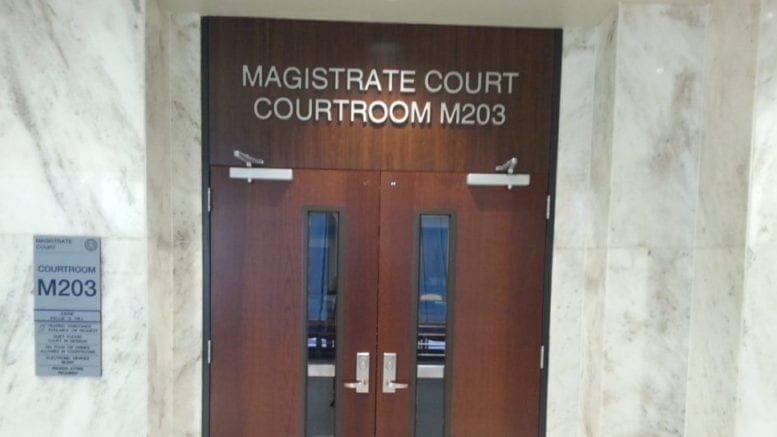Cobb County Chief Magistrate Judge Brendan Murphy was name “2021 Workhorse of the Year” by the Council of Magistrate Judges.
According to a news release on the Cobb County website, the honor was given during the recent Spring Executive Committee meeting of the council.
“Magistrate Courts take pride in 24/7 hard work for all of our communities across the state,” Judge Murphy said for the news release. “ It is truly humbling to be recognized among Georgia’s 500 dedicated magistrate judges after this difficult year.”
According to the news release, “Council President and Cobb Magistrate Court Judge Quinn Kasper cited Judge Murphy’s successful navigation of the COVID-19 pandemic, his innovative partnerships with rental assistance providers in Landlord/Tenant Court that have been studied statewide, and his service with multiple judicial bodies.”
Judge Murphy and COVID-19
Judge Murphy played an active role in handling the court’s response to COVID-19, particularly in developing an approach to evictions hearings. In addition to the health concerns posed by the typically crowded hearings, the economic crisis brought on by the pandemic delivered a blow to the ability of many renters to handle their back rent.
In March of 2020 Murphy put the eviction hearings on hold.
This was extended into the summer with the cancellation of July 2020 hearings.
Murphy also conducted a rental assistance information session, and prepared a Frequently Asked Questions (FAQ) on evictions.
About the Council of Magistrate Judges
The Council of Magistrate Judges was created by an act of the Georgia state legislature. According to the enabling legislation, “The council shall be composed of the chief magistrates, magistrates, and senior magistrates of the magistrate courts of this state.”
Georgia code describes the purpose of the council as follows:
It shall be the purpose of the council to effectuate the constitutional and statutory responsibilities conferred upon it by law, to further the improvement of the magistrate courts and the administration of justice, to assist the chief magistrates, magistrates, and senior magistrates throughout the state in the execution of their duties, and to promote and assist in the training of chief magistrates, magistrates, and senior magistrates.




